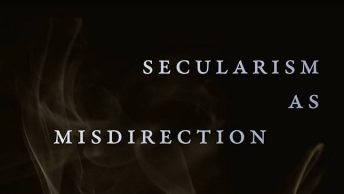The new National Law Schools have often – and justifiably – been criticized for their failure to develop a strong scholarly and research tradition and a corresponding body of scholarship on Indian law. The reasons for this failure are quite complicated, and are the subject of considerable debate. One measure of scholarly contributions is the existence of a quality journal. Two decades after the establishment of the first National Law School in Bangalore, there is no single journal within the country which can justifiably claim that it matches the heights reached by the Journal of the Indian Law Institute in its first two decades (even that esteemed journal has since been unable to consistently keep up with that level of quality in recent years).
The good news, however, is that most of the new schools now acknowledge this lacuna, and are taking steps to address it. One such measure is the renewed focus on student edited journals, and the determined efforts of their editorial boards to raise the profile of their publications by soliciting high-quality pieces from lawyers and academics within India and abroad. Simultaneously, the journals also provide a vehicle for well-researched pieces by current students, thereby paving the way for a future generation of homegrown academics. Significantly, a number of these journals have chosen to digitize their issues, and have also made efforts to provide free online access to archived issues. The trend was initially started by journals at the National Law School, Bangalore (the National Law School of India Review, the Socio-Legal Review and the Indian Journal of Law and Technology) and has been followed by NALSAR Hyderabad (the Indian Journal of Constitutional Law and the Indian Journal of Intellectual Property Law).
This post seeks to highlight the emergence of the NUJS Law Review, which has joined the trend noted above. Although only three issues old, it is quickly moving towards the achievement of its founding objectives of becoming a “medium of expression and preservation of legal research” while simultaneously serving as “an important component of legal education, training and skills learning for the students of NUJS.” The archives section of the dedicated website of the journal (perhaps a first for a student-run journal, although the IJCL has a tie-up with the commercial database Indlaw that allows it to have a separate section on an existing website) now features the full contents of the first three issues of the journal.
Each of the three issues features stimulating articles on topical issues by some leading foreign (usually German) and domestic scholars, while also containing shorter comments and notes by NUJS students. The subjects canvassed so far include : international criminal law, EU integration, , IP law, WTO law, telecommunications law, election law and a host of other topics. The book review section of each issue covers significant books on Indian law that have been published recently. Many of these articles make for interesting reading. Given my own interests, I found articles by Professors Goerlich (providing a German constitutional analysis of the death penalty) and MP Singh (which is probably one of the early published analyses of the Ashoka Kumar Thakur case) particularly stimulating.
What is most heartening about the journal is that the quality of its student-authored contributions appears to be steadily improving. The third issue in particular presents the work of a team of students, who call themselves ‘the basis structure research group’ and have authored a set of six articles focusing on various aspects of the Kesavananda ruling. Even as I have only begun to make my way through these articles, I am struck by the intellectual ambition and rigour of the analysis on display. As explained in the joint foreword by the authors, the project appears to be the result of a two-year study, and the final papers offer many provocative leads on a subject which may well be the single most analysed issue within Indian constitutional law scholarship.
The NUJS Law Review is somewhat unique in having chosen to be a quarterly. Given that more established journals have had trouble in bringing out even one annual issue in recent times, this fact is itself an indication of the ambitious nature of the project. If the fare that has been on offer so far is anything to go by, we may well have good reasons to closely watch out for succeeding issues.






thanks for sharing this arun. this indeed is a brilliant development. not just the existence of the journal, but its existence online as a free resource. i hope jili follows suit.
Thanks for drawing attention to the review through this blog. I teach at NUJS and have seen that for the students, being an editor of the review is a valued goal. This, inspite of knowing that being a quarterly, the pressure of work is immense. I guess the interest taken by Prof. Singh has been able to institutionalise the importance of the review. Though some apprehensions are expressed reagrding the quality of the articles and the fact of students writing most of them, the objectives of the review seem to be satsfied. Without taking a serious toll on quality, the review has certainly generated a culture of research and writing amongst the students in NUJS. To sustain this culture and improve the quality of writing, the faculty too has devised ways of making training in research and writing an important part of the curriculum. Ideas and support from others would definite help this effort.
There is definitely a need to train students at law schools about research and legal writing, and accommodating these things within the course-work, rather than to keep it aloof as co-curricular activities.
I think that to an extent introduction of ‘projects’ were to serve the same purpose, but the method of evaluation generally adopted proved counter-productive. There is a need to reconsider this.
As a point of opinion for legal education generally, I think it could be considered to grant credit and ‘exemption’ from compulsory project writing if students are able to involve themselves legal research and publication otherwise.
Indian Journal of Intellectual Property law (http://www.nalsar.ac.in/IJIPL/pastvolumes.html) has articles posted on the web. But I doubt if they can be searched in a google crawl.
I think with emergence of legal scholarship across law schools in India, there is also a need to have a composite database as repository of these articles – a searchable free database, probably like IndianKanoon for caselaws.